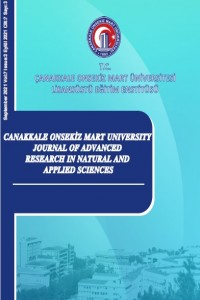Abstract
Project Number
Project No: FLY-2014-339
References
- Ahmed, Z., Wang, Y., Ahmad, A., Khan, S. T., Nisa, M., Ahmad, H., & Afreen, A. (2013). Kefir and health: A contemporary perspective. Critical Reviews in Food Science and Nutrition, 53, 422-434. DOI: https://www.tandfonline.com/doi/abs/10.1080/10408398.2010.540360
Assessment of Quality and Aroma Characteristics of Kefir Produced by Using Grain and Lyophilized Culture
Abstract
Kefir is traditionally produced using kefir grains, while lyophilized culture is widely used in industry. Microbial fermentation of kefir has critical importance on its aromatic profile and sensory attributes as well as its physicochemical parameters. The main objective of this study was to compare the differences between some physical, chemical, microbiological, sensory attributes and volatile components in kefir fermented with kefir grains and lyophilized cultures during storage. The compositional characteristic of kefir cultured by both kefir grains and lyophilized starter were monitored during 21-day storage in this study. In contrast to dramatic decreases in titratable acidity, serum separation and Streptococcus spp. count, an increase in the amount of various aroma compounds including 2-heptanone, butyric acid, hexanoic acid and octanoic acid was observed during storage of kefir samples. Incubation with lyophilized starter culture promoted kefir’ sensory and rheological attributes besides of improving its diacetyl and acetic acid aroma intensities compared with that incubation with kefir grain. “Sour”, “sweet”, “salty” and “bite (CO2)” were developed as taste terms, while “cooked” “creamy”, “fermented”, “dairy” and “yeast” were some aromatic terms for kefir samples developed by sensory evaluation. Consumer acceptance scores of the kefirs produced by using lyophilized cultures were higher than samples with grain.
Supporting Institution
The Scientific Research Fund of Canakkale Onsekiz Mart University
Project Number
Project No: FLY-2014-339
Thanks
The Scientific Research Fund of Canakkale Onsekiz Mart University (Project No: FLY-2014-339) funded this project.
References
- Ahmed, Z., Wang, Y., Ahmad, A., Khan, S. T., Nisa, M., Ahmad, H., & Afreen, A. (2013). Kefir and health: A contemporary perspective. Critical Reviews in Food Science and Nutrition, 53, 422-434. DOI: https://www.tandfonline.com/doi/abs/10.1080/10408398.2010.540360
Details
| Primary Language | English |
|---|---|
| Subjects | Food Engineering |
| Journal Section | Research Article |
| Authors | |
| Project Number | Project No: FLY-2014-339 |
| Publication Date | September 25, 2021 |
| Submission Date | March 31, 2021 |
| Published in Issue | Year 2021 Volume: 7 Issue: 3 |

